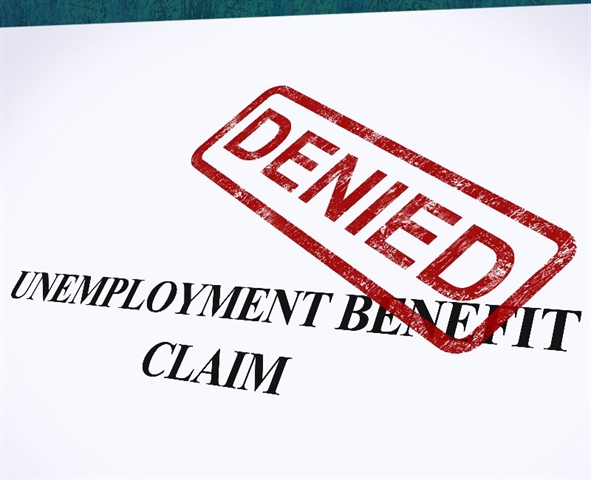
Depending on the state in which you live, you can be disqualified from receiving unemployment insurance (UI) benefits or submitting a UI claim for various reasons. Each state will have a specific set of criteria that must be met before you can take advantage of the UI program. However, there are some general issues and concerns that are considered by UI offices across the country as acceptable reasons to decline UI claims.
Unable to Work
No matter where you live in the United States, you need to be able to work and take on employment at any time. In specific, you must be physically and mentally able to work. At the same time, you must be available to work and willing to accept a full-time employment opportunity if it is found or offered to you by a local UI office.
Lack of Work Search
As part of determining your eligibility for UI benefits, you will need to meet the work search requirement. This condition requires you to prove that you are actively seeking employment by contacting employers and attending interviews on a regular basis. As a result, you can be disqualified and your claim can be declined if you choose to skip this step in the application process. More importantly, you must continue to meet this requirement while receiving UI benefits; otherwise, your UI payments will be stopped and your claim will become inactive.
Reason for Unemployment
In most cases, the reason for unemployment will cause you to become disqualified from receiving UI benefits. This is because you must be completely or partially unemployed due to no fault of your own in order to qualify for UI. Moreover, you must be able to provide the details of your reason for separation from employment. For instance, you may be required to submit supporting documentation such as a letter or notice of unemployment from your last employer to prove that you are being honest in your UI claim. However, your application can be declined if you cannot provide this necessary information.
Dishonest Reporting
As part of the application process, you will need to provide the details of your employment history from the last 12 to 18 months. In particular, you will need to include any wages earned in the weeks and days leading up to the date that your application was submit. These wages include tips, bonuses, or any form of commission. In addition, you will need to report whether you have been rewarded any severance, sick, or vacation pay from your last employer. If you fail to provide any of these details and it comes to the attention of your local UI office, you will automatically become disqualified for UI benefits.
Absence
In all 51 states, you must be residing in the state during the period in which you wish to receive UI benefits. As a result, you cannot leave the state for prolonged periods of time, work in another part of the country, or go on vacation. Moreover, you must be actively seeking employment for each week that you wish to remain eligible for UI benefits. In the case that you wish to leave the state at any time during your benefit year, you must notify your local UI office.
Latest News
-
 Benefits of Being Bilingual in Today’s Job Market Tuesday, July 16, 2019 The ability to communicate clearly and effectively is invaluable in the workpl... Read more...
Benefits of Being Bilingual in Today’s Job Market Tuesday, July 16, 2019 The ability to communicate clearly and effectively is invaluable in the workpl... Read more... -
 States with the Lowest Number of Unemployment Collection Weeks Tuesday, June 18, 2019 Periods of unemployment can cause financial strains on you and your family. On... Read more...
States with the Lowest Number of Unemployment Collection Weeks Tuesday, June 18, 2019 Periods of unemployment can cause financial strains on you and your family. On... Read more... -
 Tips for Explaining an Unemployment Gap in Your Resume Wednesday, June 12, 2019 You may experience unemployment at some point in your career. This could be du... Read more...
Tips for Explaining an Unemployment Gap in Your Resume Wednesday, June 12, 2019 You may experience unemployment at some point in your career. This could be du... Read more...
Find Unemployment Office Locations
Latest Articles
-
 Benefits of Being Bilingual in Today’s Job Market Tuesday, July 16, 2019 The ability to communicate clearly and effectively is invaluable in the workpl... Read more...
Benefits of Being Bilingual in Today’s Job Market Tuesday, July 16, 2019 The ability to communicate clearly and effectively is invaluable in the workpl... Read more... -
 States with the Lowest Number of Unemployment Collection Weeks Tuesday, June 18, 2019 Periods of unemployment can cause financial strains on you and your family. On... Read more...
States with the Lowest Number of Unemployment Collection Weeks Tuesday, June 18, 2019 Periods of unemployment can cause financial strains on you and your family. On... Read more... -
 Tips for Explaining an Unemployment Gap in Your Resume Wednesday, June 12, 2019 You may experience unemployment at some point in your career. This could be du... Read more...
Tips for Explaining an Unemployment Gap in Your Resume Wednesday, June 12, 2019 You may experience unemployment at some point in your career. This could be du... Read more...
